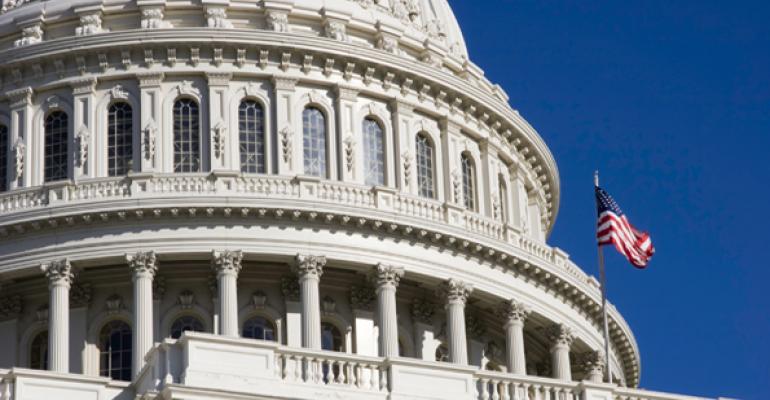Congress announced last night a deal to end the government shutdown and raise the debt ceiling to avoid default, and the deal didn’t come as a surprise to advisors. But many say the deal is not a solution to the nation’s fiscal problems by any means, but is simply a way to “kick the can down the road for a few more months,” said Jeffrey Carbone, managing partner at Cornerstone Financial Partners in Cornelius, N.C.
“It is exactly the solution that I thought Washington would craft: a delaying tactic that does absolutely nothing to address our underlying and fundamental problems,” said Mark Willoughby, managing director with CapWealth Advisors.“I fully expect to see a very similar scenario again in February, and most likely, a similar ‘solution’ from Congress.”
The real crisis, perhaps, is yet to come, advisors said.
“This, ironically, starts to sow the seeds to complacency and the next real crisis,” said John Benedict, chief investment officer and CEO for J2 Capital Management in Troy, Mich.
“This ‘deal’ speaks to the dysfunction of our government – another ‘kick the can down the road’ temporary ‘cease-fire’ that does nothing to address our very serious and long-term problems,” said James Patton, managing principal and CEO of Patton Albertson & Miller. “The fundamental questions of ‘How big should the federal government be?,’ and ‘How much of our economy should it consume?’ are not even being discussed.”
Stephen Coggins, partner and chief investment officer with Iron Gate Partners, said the deal ignores serious economic issues, such as spending money we don’t have and adding to the debt that will be difficult to repay.
For the most part, the deal did not change advisors’ long-term outlook for their clients. Most advisors have been encouraging clients to “stay the course” through the debacle.
“My clients are all invested for the long term, so I do not react to political machinations with their portfolios,” said Martin Gallagher, founder of Gallagher Investment Services.
That said, a few advisors said clients are getting more cautious.
“Any time you have that small chance the politicians could be dumb enough to create a default, it makes people uneasy,” said Kerry Mayo of Capital Financial Advisors of New York in Clifton Park, N.Y.
Willoughby said his firm has raised more cash and stayed invested in high-quality companies. He’s also looking to dividend paying stocks, although selectively.
At the start of the shutdown, Carbone increased his clients’ allocations to cash to 12 to 15 percent, and the allocation is now down to 7 to 8 percent. He also put some money to work to take advantage of down days during the shutdown, he said.
As far as how the markets will react to the deal, advisors are somewhat divided. (As of 12:15 p.m. EST, the S&P 500 was up 4 points, while the Dow Jones Industrial Average was down 59 points.) But many believe recent market performance has not been based on fundamentals.
“The markets have become nothing more than a trader's paradise—little is based on fundamentals at this point in time,” said Alan E. Rosenfield, managing director of Harmony Asset Management in Scottsdale, Ariz. “The markets are likely to trade in the higher end of its range for now and then come off again as the debates heat up.”
Some advisors expect the market to return to fundamentals now, looking more to company earnings as the driving force.
“Capital Hill will not be dictating how the markets will fare in the fourth quarter, rather the health of Q4 corporate earnings, Fed’s continued accommodative policies, EU stability, and the assessment of the shutdown on Q4 GDP growth will be the driving mechanisms,” said Kipley J. Lytel, managing advisor and senior portfolio manager of Montecito Capital Management in Santa Barbara, Calif.
“My worry now is for the impact this will all have on fourth-quarter economic data, and what that will do to the markets,” said Johann Klaassen, executive vice president and chief investment officer of Horizons Sustainable Financial Services in Palmer Lake, Colo. “Will we be ‘surprised’ as bad numbers appear, and push the markets lower? Or will we remember the reason for the poor results, and shrug them off?”
Other advisors believe that the markets have already been reacting to earnings and other fundamental factors.
“Equity prices are driven by earnings,” said Kendall Anderson of Anderson Griggs Investments in Rock Hill, S.C. “What has happened over the last few weeks will have minimal impact on businesses and their ability to earn profits.”

